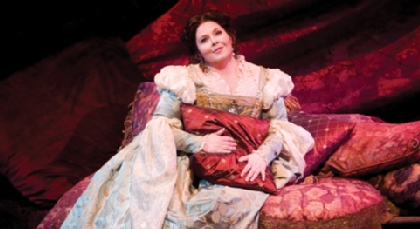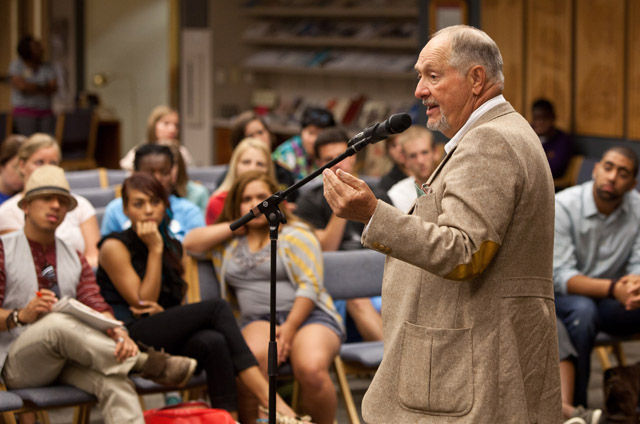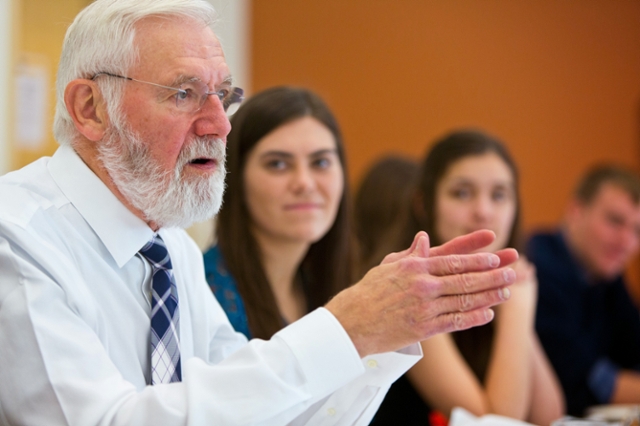Page 264 • (5,785 results in 0.05 seconds)
-
exempted unless it is strictly observational in nature. + Institutionalized individualsInstitutionalized individuals, such as those at mental health institutions require special consideration. Written permission for the conduct of the research at the institution must be obtained from the appropriate officials at that institution. In addition, if the participants are not capable of giving consent for themselves, written consent must be obtained from their legal guardians (see Parent/Guardian Consent
-

majority of that time. “We really appreciate this method of branding it, and so we decided to go ahead and utilize their tools to help students understand their role in preventing violence on our campus,” said Stephens. “We’ve gone through different versions of how we do prevention, but when the bystander education version of prevention came about, it resonated with me a lot.” Stephens says that previous prevention work around the country hasn’t changed the sexual-assault numbers. Many colleges and
-
Litigation Support Department Science and Politics at War: A COVID Case Study Moderated by Dr. Sergia Hay, Associate Professor of Philosophy and Director of the Wild Hope CenterClick here to view Dr. Beerbower’s slideshow. Click here to view Dr. Schlicher’s slideshow.September 30 Christian Responses to Plagues and Public Health: Two Perspectives from the History of Religion Dr. Brenda Llewellyn Ihssen, Associate Professor of Early and Medieval Christian History Click here to view the slideshow from
-
Educational LoansA loan is a form of financial aid that must be repaid, with interest. Few students can afford to pay for college without some form of education financing. Many students find that they must supplement their savings, earnings, or family resources with educational loans which usually do not require repayment until after completing school or dropping below half time enrollment. Before borrowing, the lender will be present you with a sample repayment schedule and terms of your loan
-

Technology, where, this year Duffy, Madeline and Matthew listened to the Vines for six hours straight and danced through the halls into the wee hours of the morning. A pivotal moment came early on the third day. After drawing up blueprints for an algorithm—which Matthew said they “lovingly” called the Optimal Node Interconnected Objectives Network, or ONION for short—they waited and watched as the code they had staked their entire paper on refused to run. They put sad music on and took a nap. When they
-

Seven Early Songs. In May Meade was also honored with the 2011 Richard Tucker Award, conferred annually on a single artist who has reached a high level of artistic accomplishment and who, in the opinion of the panel, is on a the threshold of a major international career. Then a second prestigious award followed this year. She performed last June at Benaroya Hall in Seattle to Schubert’s Overture to Rosamunde, D. 644. T Meade said she had never been exposed to opera before she came to PLU. But once
-

mind. He then woke up in jail. Still alive, but changed. It wasn’t the last time he would end up in jail. It had been his first demonstration as a field officer for the Student Nonviolent Coordinating Committee. It was the early 1960s in Mississippi. As a civil rights activist, he was there to lead a peaceful protest condemning the murder of an African American man whose supposed crime had been registering to vote. Zellner, now 72, shared his story with students last week as the kick-off for the
-

in 1984. While at the CDC, he forced drug companies to warn that aspirin might cause the sometimes-deadly Reye Syndrome, reacted quickly to alert women to the dangers of toxic shock syndrome and saw the first cases of a frightening new disease in the early 1980s: AIDS. Over his career, he has been, quite simply, recognized as one of the most important figures in public health. Tom Paulson ’80, who works with Foege for Paulson’s health-oriented blog – Humanosphere – calls Foege a “global health
-

part of the first Communication class to study internationally; and was a columnist for PLU’s student newspaper, The Mooring Mast. She did this all with the help of her first professor at PLU, Professor of Communication Joanne Lisosky. “I met her really early on,” said Henrichsen. “I talked with her about my goals and ideas. We connected really quickly, which was awesome. I stayed in the Communication department because I appreciated her role, her enthusiasm and dedication.” From there, Lisosky
-
. Mary Baker Russell West (on path through woods): Big Oak Tree, possibly 300 years old. Betula nigra Memorial Gym West: The three southern Magnolias (Magnolia grandiflora) succumbed to ice damage and were replaced with June Snow Dogwood (Cornus controversa ‘June Snow’). The Magnolia’s are coming back from the roots. Northeast: Cedar Deodar (Cedrus deodara) is an evergreen tree. Male trees produce catkins that hold copious amounts pollen, which is spread in the early spring. Female trees have 3-5
Do you have any feedback for us? If so, feel free to use our Feedback Form.


